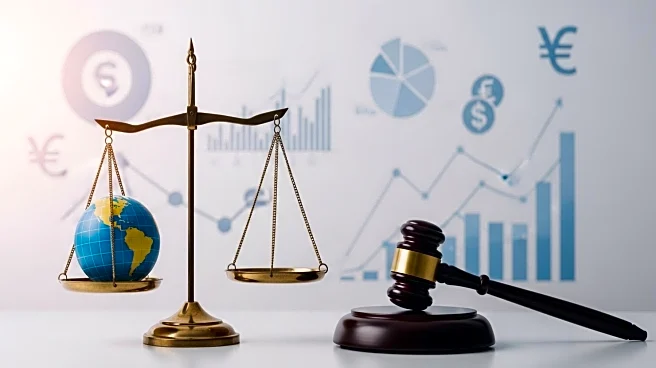What is the story about?
What's Happening?
President Trump continues to impose tariffs on a wide range of goods, despite significant opposition from Wall Street, Republicans, and some courts. These tariffs, which include a 10% levy on foreign softwood lumber and timber, and a 25% tariff on kitchen cabinets, vanities, and upholstered wooden furniture, have been justified by Trump under emergency economic powers. The tariffs have led to increased inflation and economic uncertainty, affecting the U.S. labor market as employers hesitate to hire more workers. Despite these challenges, the stock market remains near all-time highs, partly due to the Federal Reserve's recent interest rate cuts. The Supreme Court is set to hear a case in November that will determine whether Trump has the legal authority to impose these tariffs.
Why It's Important?
The tariffs imposed by President Trump have significant implications for the U.S. economy and international trade relations. If the Supreme Court rules against Trump's use of emergency economic powers, the federal government may be required to refund approximately $80 billion in tariff payments made by businesses this year. This could have a substantial impact on U.S. industries that rely on imported goods, potentially leading to lower costs for consumers but also affecting domestic manufacturers. The outcome of the Supreme Court case could set a precedent for the limits of presidential power in trade policy, influencing future administrations' ability to unilaterally impose tariffs.
What's Next?
The upcoming Supreme Court case will be pivotal in determining the future of President Trump's tariff policies. If the court rules that Trump lacks the authority to impose these tariffs, it could lead to significant changes in U.S. trade policy and economic strategy. Businesses and political leaders are closely watching the case, as its outcome could affect international trade agreements and the global economic landscape. Additionally, the Trump administration may explore alternative methods to achieve its foreign policy goals if the tariffs are deemed unlawful.















